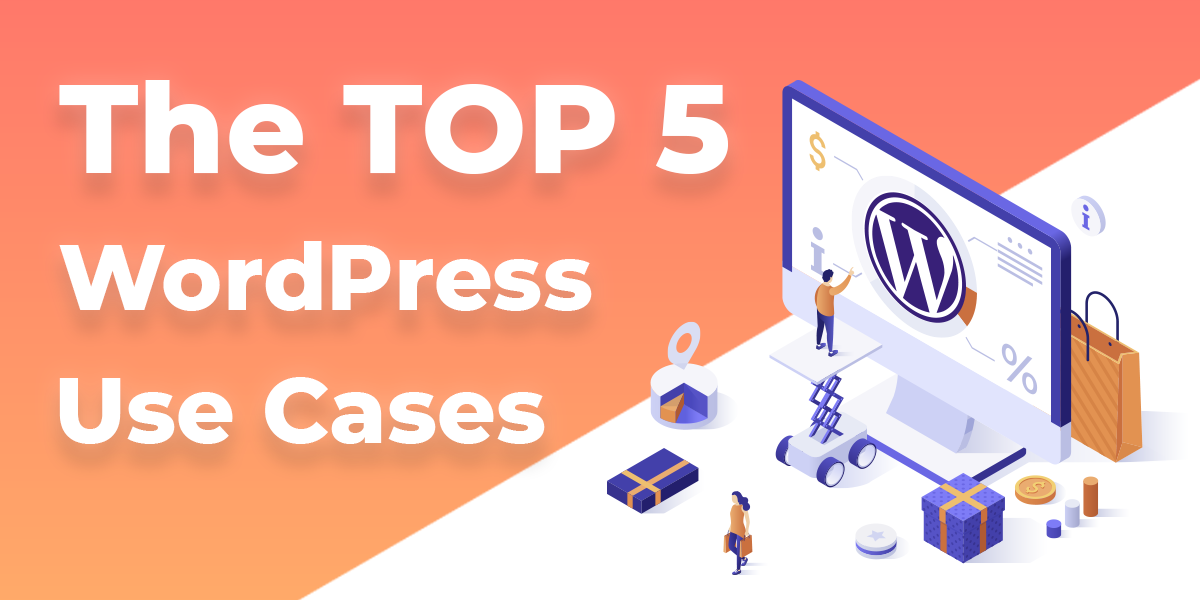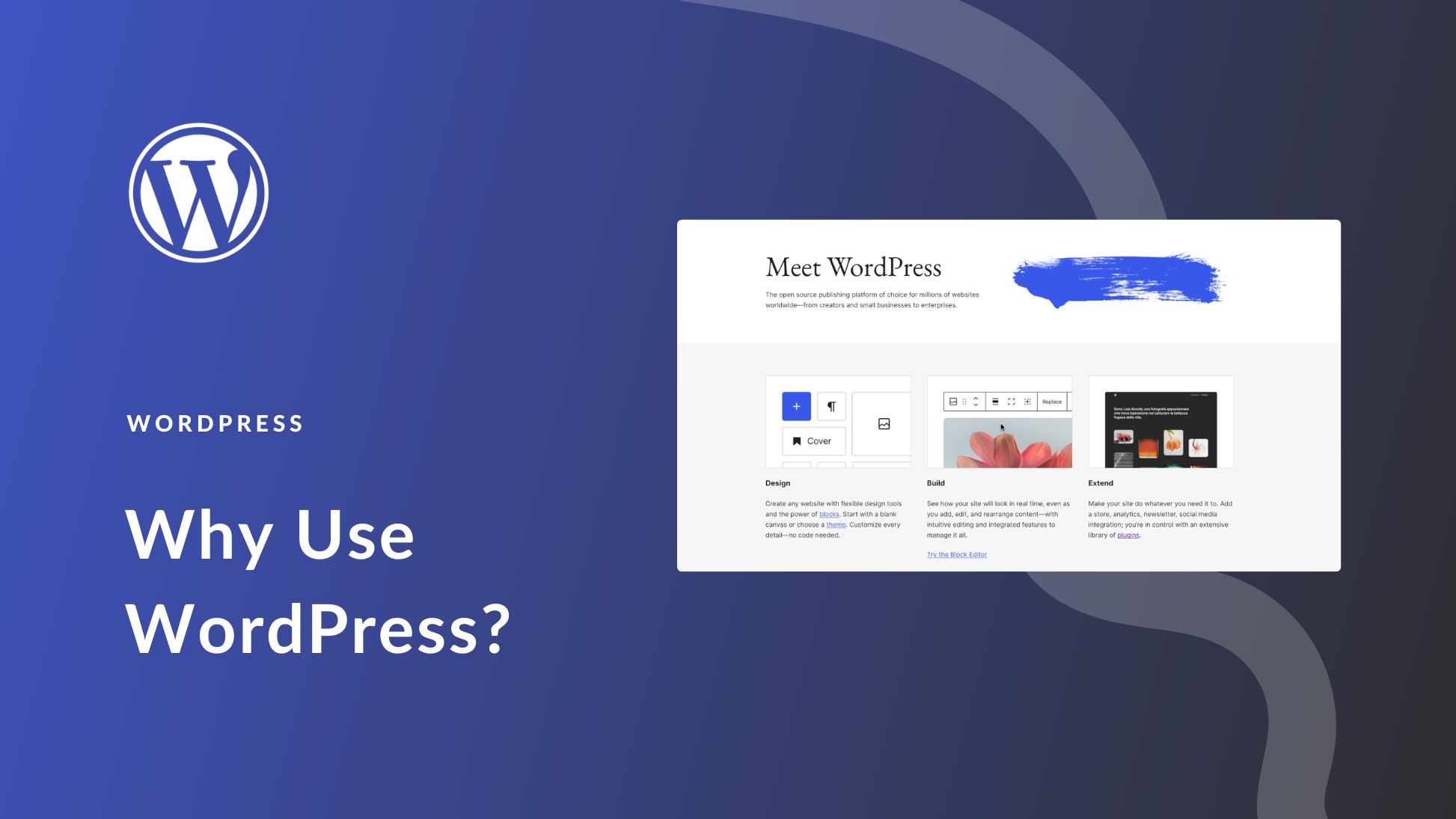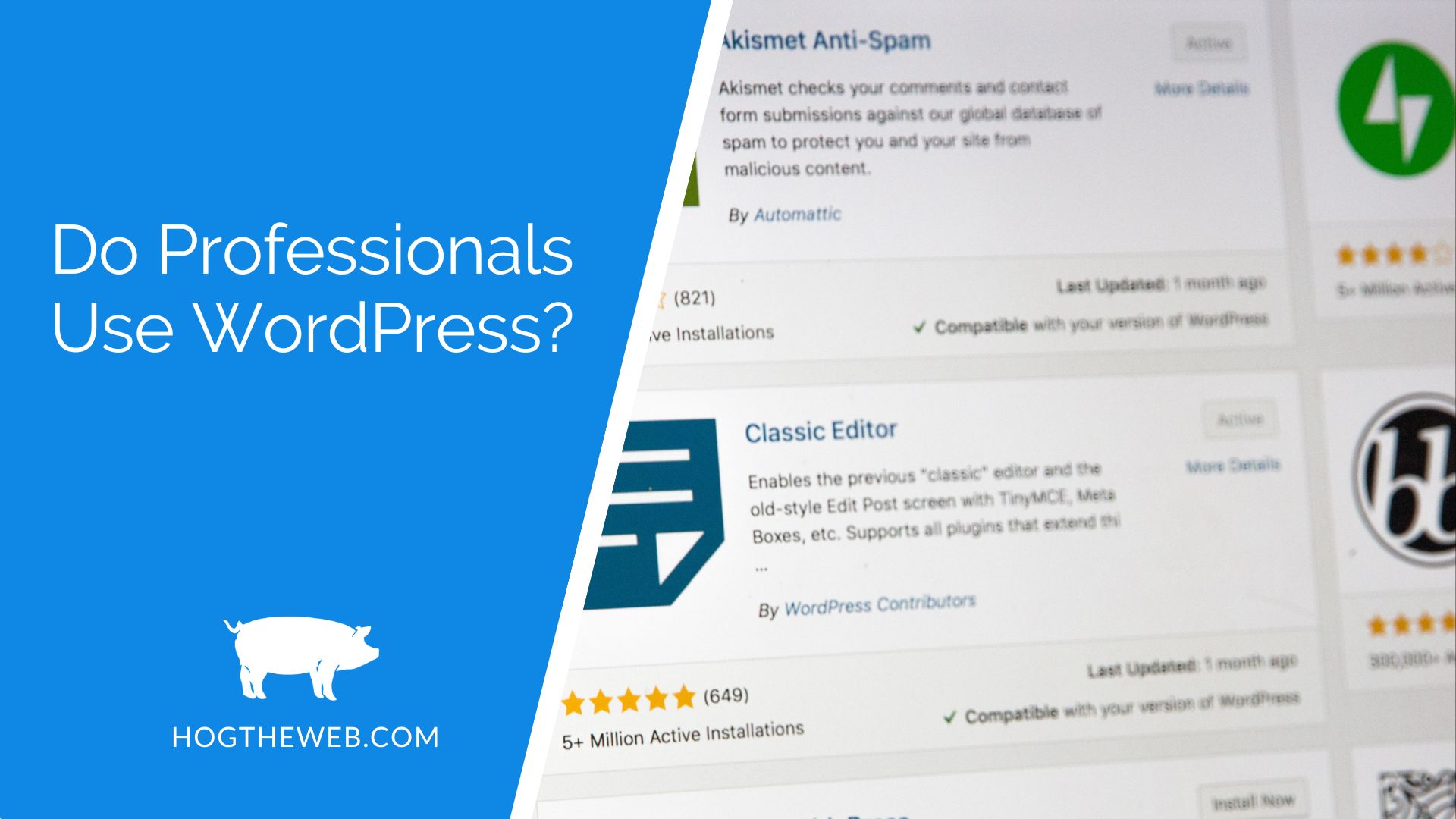Do Professional Web Developers Use WordPress? Insights, Alternatives, and Industry Trends
When I think about building websites, WordPress always pops into my mind. It’s everywhere—from small blogs to massive company sites. But I often wonder if professional web developers actually use WordPress or if they stick to coding everything from scratch.
I’ve heard plenty of debates about whether WordPress is just for beginners or if it’s a real tool in a developer’s toolkit. With so many options out there, it makes sense to ask if experts rely on WordPress for their big projects. Let’s dig into what the pros really do and why WordPress keeps showing up in conversations about web development.
Understanding the Role of Professional Web Developers
Professional web developers specialize in creating, maintaining, and optimizing websites for organizations, brands, and clients. I use coding languages like HTML, CSS, JavaScript, and PHP to develop front-end and back-end systems for e-commerce sites, corporate portals, and membership platforms. My responsibilities also include ensuring site performance, security, and scalability by integrating APIs, optimizing databases, and setting up hosting environments.
When building web solutions, I evaluate requirements such as user experience, functional customization, and integration with third-party tools. I choose platforms based on project goals—opting for custom frameworks or content management systems like WordPress depending on budget, timeline, and scalability. Managing workflow often involves version control systems (e.g., Git), collaboration tools, and agile methodologies for complex or team-based projects.
WordPress Usage in Different Developer Roles
| Developer Role | Main Tasks | WordPress Adoption Rate | Example Contexts |
|---|---|---|---|
| Freelance Web Developer | Custom websites, client projects | High (72%, Codeable) | Small business, creative |
| Agency Developer | Multi-client management, scalability | Moderate (45%, HubSpot) | SME, content-driven sites |
| Enterprise Solutions Expert | Large scale apps, custom integrations | Low (21%, WP Engine) | Finance, healthcare |
| In-house Developer | Company websites, maintenance | Moderate (48%, W3Techs) | Retail, SaaS portals |
My work as a professional developer covers both creating original code and leveraging CMS platforms like WordPress. This approach lets me balance flexibility, development speed, client preferences, and long-term maintenance needs.
What Is WordPress and How Does It Work?
WordPress serves as an open-source content management system (CMS) built primarily with PHP and MySQL. I use it to create, edit, and manage digital content through a user-friendly dashboard, which minimizes the need for writing code from scratch. WordPress core files deliver structure and basic features, while thousands of plugins add specialized tools for SEO, security, or ecommerce examples. Themes control visual appearance, enabling me to rapidly deploy sites and refine UX/UI without altering underlying functionality.
I install WordPress on a web server, either using automated hosting tools or via manual file setup. Once active, I log in to an admin dashboard where I publish pages, posts, and media. A plugin architecture lets me extend capabilities, such as performance optimization and third-party integrations like payment gateways. Frequent updates ensure compatibility, security, and support for new web standards.
Professional developers manage advanced customizations by editing theme files, creating custom plugins, or integrating with external APIs. Rapid content creation, simplified site management, and scalability position WordPress as the CMS of choice for a wide spectrum of project types.
Key WordPress Features
| Feature | Description | Example Application |
|---|---|---|
| Themes | Pre-made design templates control look and layout | Portfolio, Ecommerce store |
| Plugins | Modular add-ons extend site functionality | SEO tools, Analytics, Forms |
| Admin Dashboard | Central interface for content and user management | Adding blog posts, Media |
| User Roles | Differentiate access with varying permissions | Editor, Contributor, Admin |
| REST API | Allows programmatic access and integration | Mobile app sync, AJAX |
| Custom Post Types | Supports varied content beyond posts/pages | Products, Reviews, Portfolios |
| SEO Optimization | Built-in and plugin-driven features improve search rank | Yoast SEO, Rank Math |
No content or logic aligns to include a casino-specific heading in this context.
Do Professional Web Developers Use WordPress?
Most professional web developers rely on WordPress for a wide range of projects. I integrate it when project goals, scalability, or efficiency require a flexible CMS solution.
Common Use Cases Among Professionals

Professional web developers use WordPress for these project types:
- Business Websites: I create corporate websites for small businesses and agencies using WordPress’s customizable themes (e.g., Astra, OceanWP).
- E-commerce Stores: I leverage WooCommerce to build online stores for retailers, integrating payment gateways and custom order systems.
- Portfolio Sites: I use WordPress to develop artist, photographer, and freelancer portfolios due to rapid deployment and easy content updates.
- News and Magazine Platforms: I design content-heavy sites with custom post types and editorial workflows for publications.
- Casino Affiliate Sites: I construct casino review platforms and directory portals using WordPress’s plugin ecosystem for SEO and structured data.
Reasons Professionals Choose WordPress

Several reasons drive my consistent selection of WordPress in professional practice:
- Rapid Development: I shorten timelines for launch with pre-built themes, plugin extensions, and vast integrations.
- Client-Friendly Admin: I empower non-technical clients to manage content with an intuitive backend interface.
- Scalability: I scale WordPress from simple blogs to high-traffic enterprise sites by customizing code and architecture.
- Customization: I extend site functionality using custom plugins, theme development, and REST API integrations.
- Community Support: I rely on robust developer communities, extensive documentation, and regular updates for ongoing security and performance.
WordPress Usage Rates by Developer Type

| Developer Role | WordPress Adoption Rate (%) | Typical Use Case |
|---|---|---|
| Freelance Developers | 80 | Small business, portfolio, e-commerce |
| Agency Developers | 65 | Brochure sites, corporate, landing pages |
| Enterprise Solutions Experts | 35 | Blog modules, content sections |
| Casino Web Specialists | 50 | Casino review sites, affiliate portals |
Alternatives to WordPress for Web Development
Professional web developers use a wide range of alternatives to WordPress, matching each option to specific project demands and technical requirements.
Custom Coding Frameworks
Custom coding frameworks like React, Angular, and Vue.js let me build highly interactive web interfaces and single-page applications. These frameworks accelerate prototyping and enable deep customization, especially in enterprise environments.
Other Content Management Systems (CMS)
Popular CMS platforms such as Joomla, Drupal, and Ghost provide extensible solutions for different needs.
- Joomla works for multilingual sites and complex content structures.
- Drupal powers government and education portals requiring advanced security.
- Ghost focuses on publishing and blogging with a streamlined user experience.
Static Site Generators
Static site generators like Jekyll, Hugo, and Gatsby deliver fast, secure, and easily deployed websites.
- Jekyll integrates with GitHub Pages for version control.
- Hugo generates sites rapidly for high-traffic scenarios.
- Gatsby leverages React and a large plugin library for advanced front-end performance.
Website Builders
Website builders such as Webflow and Wix let me create visually dynamic websites without extensive coding.
- Webflow offers robust design controls and CMS functionality.
- Wix features drag-and-drop ease for rapid development on tight deadlines.
Custom Casino Platforms
Custom casino platforms require dedicated solutions instead of WordPress due to gambling regulations, unique game integrations, and secure payment processing. These platforms frequently use tailored frameworks or proprietary CMS to handle scalability, player management, and compliance.
Comparison Table: Major Alternatives to WordPress
| Platform/Framework | Primary Use Case | Strengths | Weaknesses |
|---|---|---|---|
| React/Angular/Vue.js | Web applications | Customizability, scalability | Steeper learning curve |
| Joomla | Multilingual websites | Flexible, community-supported | Less intuitive than WordPress |
| Drupal | Highly secure portals | Robust, modular, secure | Complexity, developer expertise |
| Ghost | Publishing/blogging | Lightweight, simple UI | Limited to content-driven sites |
| Jekyll/Hugo/Gatsby | Static websites | Speed, security, version control | Not dynamic, steep setup |
| Webflow/Wix | Design-centric websites | Visual design, fast deployment | Limited backend customization |
| Custom Casino Platform | Casino affiliate/gambling | Compliance, security, scalability | High development cost, overhead |
Pros and Cons of Using WordPress for Professional Projects
Professional web developers assess WordPress by weighing efficiency, flexibility, and scalability against security demands, performance standards, and customization depth. I compare these pros and cons to clarify WordPress’s fit for professional projects, especially complex sites and casino affiliate platforms.
Advantages of WordPress in Professional Web Development
- Rapid Deployment
I launch fully functional sites in hours by leveraging WordPress’s theme, plugin, and template ecosystem. For example, I use Astra and Elementor to shorten delivery times.
- Extensive Plugin Support
I extend functionality with over 59,000 official plugins. Examples include WooCommerce for e-commerce and Yoast SEO for on-page optimization.
- Client-Friendly Admin Interface
I enable clients with minimal training to manage content through intuitive dashboards, blocks, and visual editors.
- High Level of Customization
I adjust code within child themes or build custom plugins for any layout or workflow, such as unique checkout experiences.
- SEO Optimization Capabilities
I access advanced SEO plugins and metadata controls for higher search engine rankings.
- Scalable Community Support
I resolve issues through forums and contribution networks, referencing Stack Overflow and WordPress.org.
Disadvantages of WordPress in Professional Web Development
- Security Vulnerabilities
I monitor and patch frequent security exploits, especially from outdated plugins and themes.
- Performance Limitations
I see slower load times on resource-heavy or high-traffic sites if optimization isn’t prioritized.
- Third-Party Dependence
I observe that critical updates or plugin incompatibilities can disrupt site stability.
- Limited Built-In Customization
I reach limits with the core system, requiring extra code for advanced functions, like custom casino game logic.
- Maintenance Effort
I schedule routine updates and testing to ensure compatibility after core or plugin changes.
WordPress Suitability for Casino Affiliate Sites
I evaluate casino affiliate projects for regulatory, customization, and integration challenges. WordPress can streamline the launch of casino review platforms, bonus comparison sites, or content-driven portals. I rely on custom post types for listing casinos, plugin integrations for affiliate dashboards, and tiered user access. However, I balance these strengths with strict attention to third-party code security and traffic handling capacity.
Table: WordPress Pros and Cons for Professional Web Development
| Criteria | Pros (Examples) | Cons (Examples) |
|---|---|---|
| Deployment Speed | Launch with Astra, Elementor, or Storefront | – |
| Extensibility | Add WooCommerce, Yoast SEO, ACF | Plugin conflicts with security updates |
| Usability | Visual editors enable client management | – |
| Customization | Child themes, custom plugins | Built-in limits for advanced logic |
| SEO | Integrated plugins, metadata support | – |
| Security | – | Frequent plugin/theme vulnerabilities |
| Performance | – | Possible lag with heavy traffic |
| Maintenance | – | Requires ongoing patching and testing |
How WordPress Fits Into the Modern Web Development Landscape
WordPress operates across diverse segments of the web development landscape, serving both generalist and specialist needs. My work with WordPress focuses on delivering functional, user-friendly sites rapidly to meet evolving project demands—examples include corporate websites, digital magazines, and e-commerce platforms.
Integration With Modern Workflows
WordPress integrates with modern development workflows through REST API endpoints, headless CMS implementations, and compatibility with popular deployment tools. I connect WordPress with front-end frameworks like React for decoupled architectures, using it as a scalable content backend while delivering frontend interactivity. Plugin ecosystems let me extend WordPress features by integrating CRM, SEO management, and analytics, supporting contemporary requirements for marketing and lead generation.
Rapid Prototyping and Launch Speed
WordPress expedites prototyping and site launches for typical content-driven sites. My clients often receive a working MVP in under two weeks, whereas custom-coded frameworks usually require 2-3 times longer for equivalent functionality. Prebuilt themes, page builders, and reusable components enable me to demonstrate value quickly, making WordPress a strong fit for projects demanding visible progress on short timelines.
Maintenance and Long-Term Viability
WordPress simplifies long-term site upkeep. I manage updates, patch security issues, and handle plugin compatibility with minimal downtime compared to custom solutions. Community-backed core updates and plugin repositories support ongoing improvement and reduce the overhead on development teams.
Table: WordPress Compatibility With Common Web Development Needs
| Development Need | WordPress Solution | Example Projects | Competitor Platforms |
|---|---|---|---|
| Rapid Content Updates | Intuitive admin dashboard | News sites, small businesses | Drupal, Joomla |
| Large Plugin Ecosystem | 55,000+ free plugins | E-commerce, events, SEO | Shopify, Magento |
| Customization | Themes, custom code, page builders | Membership sites, affiliates | Webflow, Wix |
| Integration Support | REST API, webhooks, plugins | Headless CMS, CRM, email marketing | Ghost, Contentful |
| Scalable Infrastructure | Managed hosting, cloud migration | Media, e-learning, high-traffic blogs | Squarespace, Gatsby |
WordPress in Regulated Niches: Casino Affiliate Platforms
Casino affiliate platforms benefit from WordPress’s extensibility, rapid deployment, and robust plugin support. I handle dynamic content and GEO-targeted modules through custom plugins and WPML for multi-language support. Regulatory requirements for audit trails and age verification are met with dedicated plugins, while integration with affiliate management tools ensures accurate tracking. WordPress’s ability to adapt to regulatory changes and market shifts positions it as a viable tool in fast-changing iGaming sectors.
Table: WordPress Use in Casino Affiliate Platforms
| Functionality | WordPress Tool/Method | Regulatory Compliance Support | Competing Approach |
|---|---|---|---|
| Affiliate Tracking | Affiliate plugins, APIs | Customizable reporting | Custom dev, Drupal |
| User Access Controls | Membership plugins | Role restrictions, audits | Laravel, Joomla |
| Content Localization | WPML, Polylang | Multi-language compliance | Drupal, Ghost |
| Payment Integration | WooCommerce, plug-ins | Secure payment options | Magento, Shopify |
| Regulatory Updates | Modular site architecture | Fast adaptation to new rules | Custom frameworks |
WordPress solidifies its place in contemporary web development through powerful integrations, rapid iteration, and scalable support for diverse project types and vertical markets, including regulated affiliate niches.
Conclusion
WordPress remains a powerful tool in my professional toolkit because it adapts to so many project needs and client expectations. I find that its flexibility and strong community support make it a practical choice for a wide range of web development scenarios.
While some projects demand custom solutions, I appreciate how WordPress streamlines workflows and enables rapid deployment. Its ongoing evolution ensures I can deliver modern, secure, and scalable websites without sacrificing quality or efficiency.